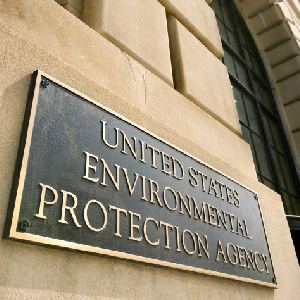EPA Challenging IRS In Its Oppressive Power Grab

FILE
There was a time when it could be said there was no more oppressive and reviled Federal agency than the Internal Revenue Service.
Americans feared contact with that agency like no other. It held in its hands the power to proclaim an American citizen guilty of the crime of keeping for himself too much of that which he earned, and required the American citizen to prove his innocence — a policy which stood American justice on its head.
But now there’s a new sheriff in town giving the IRS a run for its money in its ability to oppress the American people. It’s the laughingly misnamed Environment Protection Agency, and it is drawing unConstitutional powers to itself like a black hole draws in matter.
In a Federal Register notice issued July 2, the EPA stated that it now has assumed powers only the IRS had previously assumed: the power to garnish — without a court order — non-Federal wages to collect delinquent non-tax debts “owed” the U.S.
The EPA suddenly believes it derives this power from the Debt Collection Improvement Act of 1996. According to the Department of Treasury, under DCIA, collectable debts include unpaid loans, overpayments or duplicate payments made to Federal salary or benefit payment recipients, misused grant funds, and fines, penalties or fees assessed by Federal agencies.
The EPA regularly misapplies the Clean Water Act — along with regulatory mandates it creates out of whole cloth — to prohibit people and businesses from using their own property to their liking. It invokes fines of thousands of dollars per day without due process, and states that its policies cannot be challenged by the affected property owners.
In one such case, Andy Johnson of Wyoming built a pond on his property. Before building it, Johnson sought and gained the approval of local and State regulators. But he failed to get the approval from the Army Corps of Engineers. The EPA has since threatened him with fines of $75,000 per day for violations of the Clean Water Act if he doesn’t destroy the pond, even though the pond is unpolluted and draws myriad wildlife species.
Another case is that of Chantel and Michael Sackett of Idaho, who were threatened by the EPA with fines of $75,000 per day for trying to build a home on a small lot they owned between other lots that already contained homes. Although the EPA told the Sacketts its order could not be challenged, the Sacketts took it all the way to the Supreme Court, which ruled unanimously in the Sacketts’ favor. In his opinion, Justice Antonin Scalia wrote, “In a nation that values due process, not to mention private property, such treatment is unthinkable.”
His opinion went on to state, “[T]here is no reason to think that the Clean Water Act was uniquely designed to enable the strong-arming of regulated parties into ‘voluntary compliance’ without the opportunity for judicial review–even judicial review of the question whether the regulated party is within the EPA’s jurisdiction.”
But court challenges are costly, particularly against a government entity with an ever-full purse. There are few in the country who would be able to wage a court battle while having their wages garnished.
The EPA is a prime example of big government run amok and demonstrates the danger of allowing an imperial Presidency to rule by fiat. It’s an unConstitutional agency created by executive order by the statist Richard Nixon. And, sadly, it demonstrates again that a feckless Congress has ceded its Constitutional authority as the American lawmaking body.
If the EPA is allowed the power of “debt” collection by garnishment, it will essentially become its own judge, jury and executioner with the unchecked power to levy fines, determine they are unchallengable, and collect the fees in one fell swoop.

No comments:
Post a Comment
Thanks for commenting. Your comments are needed for helping to improve the discussion.